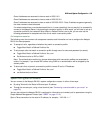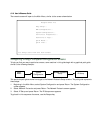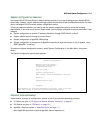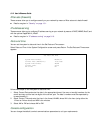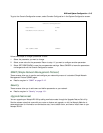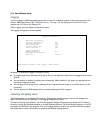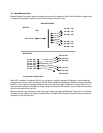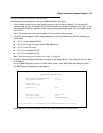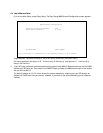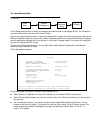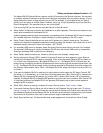
IP Setup and Network Address Translation 9-1
CC
CC
hh
hh
aa
aa
pp
pp
tt
tt
ee
ee
rr
rr
99
99
II
II
PP
PP
SS
SS
ee
ee
tt
tt
uu
uu
pp
pp
aa
aa
nn
nn
dd
dd
NN
NN
ee
ee
tt
tt
ww
ww
oo
oo
rr
rr
kk
kk
AA
AA
dd
dd
dd
dd
rr
rr
ee
ee
ss
ss
ss
ss
TT
TT
rr
rr
aa
aa
nn
nn
ss
ss
ll
ll
aa
aa
tt
tt
ii
ii
oo
oo
nn
nn
The Netopia R9100 uses Internet Protocol (IP) to communicate both locally and with remote networks. This
chapter shows you how to configure the Router to route IP traffic. You also learn how to configure the router to
serve IP addresses to hosts on your local network.
Netopia’s SmartIP features IP address serving and Network Address Translation. For a detailed discussion of
Network Address Translation, see Appendix C, “Understanding Netopia NAT Behavior” This chapter describes
how to use the Network Address Translation feature of SmartIP.
This section covers the following topics:
■ “Network Address Translation features” on page 9-1
■ “Using Network Address Translation” on page 9-3
■ “IP setup” on page 9-6
■ “IP address serving” on page 9-16
Network Address Translation allows communication between the LAN connected to the Netopia R9100 and the
Internet using a single IP address instead of a routed account with separate IP addresses for each computer on
the network.
Network Address Translation also provides increased security by hiding the local IP addresses of the LAN
connected to the Netopia R9100 from the outside world.
With SmartIP, the setup is simpler, so Internet service providers typically offer internet accounts supporting
Network Address Translation at a significant cost savings.
Network Address Translation features
Network Address Translation (NAT) offers users the following features:
■ The single proxy address is acquired at connection time from the answering side. The address can be
assigned by the remote router from either a dynamic pool of addresses or a fixed, static address.
■ Static NAT Security is simpler and more reliable because only one IP address needs a firewall, and because
the internal network structure is not visible from the Internet.



